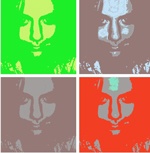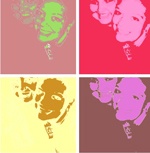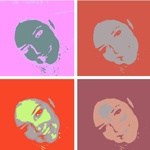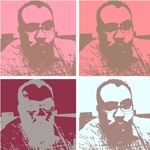
About a week ago I finished reading And the Ass Saw the Angel by Nick Cave. This is from the back cover:
"Outcast, mute, a lone twin cut from a drunk mother in a shack full of junk, Euchrid Eucrow of Ukolore inhabits a nightmarish Southern valley of preachers and prophets, incest and ignorance. When the God-fearing folk of the town declare a foundling child to be chosen by the Almighty, Euchrid is disturbed. He sees her very differently, and his conviction, and increasing isolation and insanity, may have terrible consequences for them both. Compelling and astonishing in its baroque richness, Nick Cave’s acclaimed first novel is a fantastic journey into the twisted world of Deep Southern Gothic tragedy."
That said, this is one of those books that I wish I’d never read so I can enjoy reading it again for the first time. It’s like Christmas, and I read very slowly towards the end so I could savor it. The imagery is so brilliant, that I went to work the next day after reading it thinking I’d watched a movie the night before.
A major theme is about those people who are marginalized by society, why they’re marginalized, and how the marginalization affects them. And the Ass Saw the Angel is full of marginalized characters: Cosey Mo is a prostitute who is lovely in Euchrid’s eyes, Euchrid himself who is daydreamy and curious, but is assumed to be stupid and crazy, his quiet father, the only intelligent child of a severely inbred family.
Normally while reading a story, I can’t help but try to discern who the bad and good characters are supposed to be. But ATASTA blurs these definitions. The mainstream is the church people, the Ukulites, who purport to uphold what is pure and righteous, but then unleash heinous acts of violence against the people they’ve marginalized in the community: the prostitute, the crazy mute, the alcoholic. It’s no surprise that what they deem as putrid isn’t nearly as vile as the hate and violence that seethes inside them.
Throughout the book, Euchrid becomes increasingly more insane, and begins to commit more obscure acts of violence. I still can’t dislike Euchrid. It seems that in the beginning, his insanity was a seed that only grew wild because of the violence and indifference inflicted on him by his mother and the townspeople. I think it reflects a case of biology influenced by environment, which makes me sad when I think about our own stories in relation to our contemporary society.
Other than that, the story, the prose, the characters are heart-breakingly beautiful.
Here's another blog on it (but it's a spoiler on some of the action)








No comments:
Post a Comment